The choir from Detroit’s Perfecting Church performs a rendition of “America the Beautiful” ahead of the #DemDebate. Watch CNN: http://CNN.it/go
Follow live updates: https://cnn.it/2SSNUK5
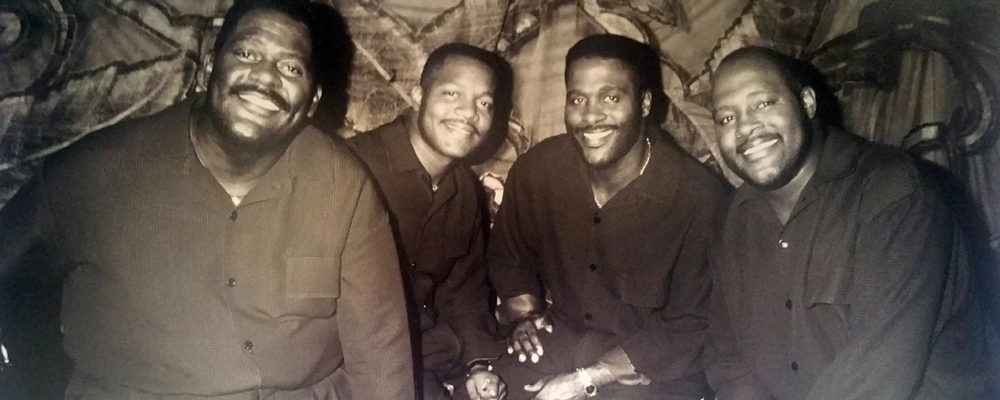
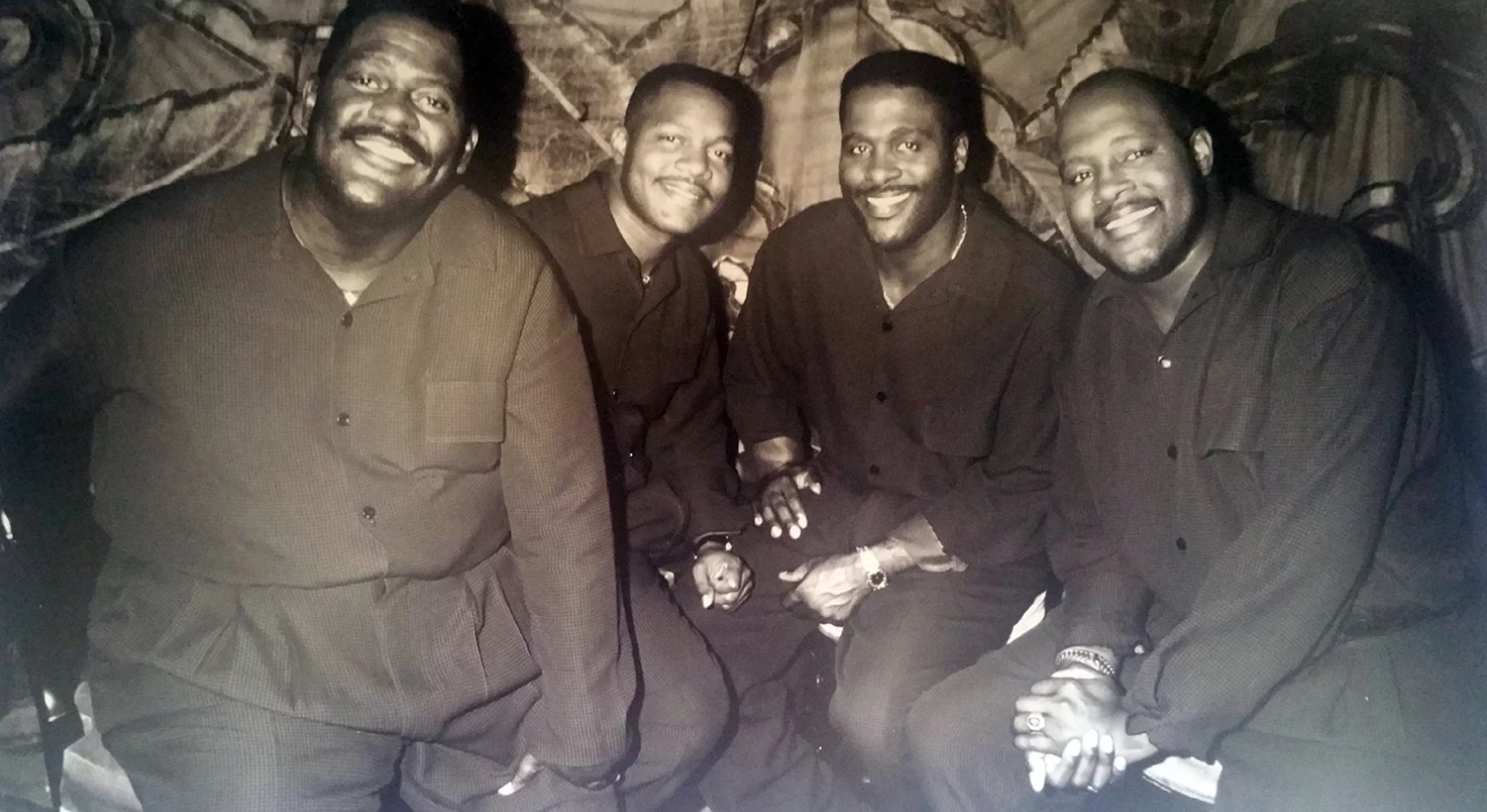
The Winans group in 1995 included Ronald, from left, Michael, Carvin and Marvin. Photo by Jeffrey Mayer
Thirty years ago, Pastor Marvin Winans was singing with three of his brothers in the gospel group The Winans and touring with his musical play, “Don’t Get God Started,” after its Broadway run.
He also started a church. Beginning with just eight members meeting in the basement of his house in the Detroit suburb of Birmingham, Winans became the pastor of Perfecting Church, a Pentecostal congregation that soon became a place where young adults could develop their spiritual lives.
“The church just begin to grow because we would go into the Dairy Queen, wherever we could find young people, and tell them they need to come to church,” he recalled in an interview Tuesday (Oct. 1) with Religion News Service. “And when they came, they stayed and we grew very fast.”
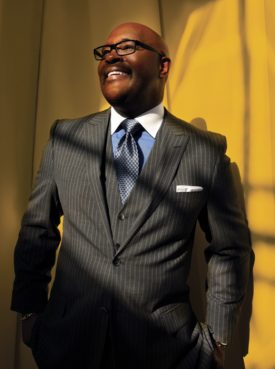
Pastor Marvin Winans. Photo courtesy of GBP Studio 2
Fast forward three decades and Winans is marking the anniversary of his church, now with 1,800 members in the Motor City, while remaining committed to helping his community through the schools and ministries he has started to help train youth and give women a safe place to live.
For Perfecting Church’s Oct. 11 anniversary gala, Winans, 61, has invited social justice activist Bryan Stevenson to speak. BeBe and CeCe Winans, his singing siblings, also are slated to perform.
To be a Grammy-winning pastor, however, is to live a double life: Though officially retired from singing, Winans still agrees to some requests. Earlier this year, he was featured at the Super Bowl Gospel Celebration and with the Dallas Symphony Orchestra’s “Gospel Goes Classical” concert.
“What stands out to me about Marvin Winans musically is just the beauty and seemingly effortless vocal technique,” said Bil Carpenter, author of “Uncloudy Days: The Gospel Music Encyclopedia,” who said the Detroit senior pastor was the “backbone” of The Winans.
“I have been in events or services where he wasn’t on the program. He was just there. Someone handed him the mic. It was as if he had rehearsed. He picks up on other people’s songs and sings them better than they sing them.”
Winans’ skills as an arranger and conductor have also been on display recently: At the start of the July Democratic presidential candidate debate at Detroit’s Fox Theatre, he directed Perfecting Church singers in his new rendition that combined women singing “America the Beautiful” and men singing “Amazing Grace.”
The choir from Detroit’s Perfecting Church performs a rendition of “America the Beautiful” ahead of the #DemDebate. Watch CNN: http://CNN.it/go
Follow live updates: https://cnn.it/2SSNUK5
“All I can tell you is, music is what I do,” he said, describing how, while sitting at the piano and going over the voice parts during a rehearsal, a thought came to him: “Wow, this sounds similarly like ‘Amazing Grace’ and we just split it and had that happen.”
Renee Compton, a choir director at Perfecting Church, was among the singers who watched Winans’ creative process in person and rehearsed several times for the two-and-half-minute performance.
“It’s very intense, but it’s also very good ’cause you actually sit there and you learn and you just see the creative genius of it,” said Compton, who helped found Perfecting Church while in her 20s. “The gift that he has to do that is just absolutely incredible, that he’s able to just put all of that together.”
RELATED: Marvin Winans will add soul to Whitney Houston’s funeral
One of 10 children of Delores “Mom” Winans and David “Pop” Winans, Marvin Winans grew up in a household where gospel music was the only genre allowed to be sung or played. Attendance at his great-grandfather’s Church of God in Christ was a regular practice. He served as a young minister at Shalom Temple, a Holiness church in Detroit and continued his connection with the Pentecostal/Holiness tradition when he started his predominantly black congregation.
Cindy Flowers, the general manager of Perfecting Church, said she became the church’s first employee in July 1989.
“We probably had about 13, 15 members, and I’m thinking, ‘Why do we need staff?’” said Flowers, who also was one of the eight founding members. “But Pastor Winans just has always had a much, much, much bigger vision.”
As the church developed, it moved from Winans’ basement to a hotel to rented church buildings, often meeting in the afternoons after their landlords’ services. Meanwhile, Winans expanded the scope of his work in Detroit. He founded the Winans Academy of Performing Arts in 1997 and developed the Rutherford Winans Academy in 2012. The two public charter schools currently have a total enrollment of more than 600 students, Winans said.
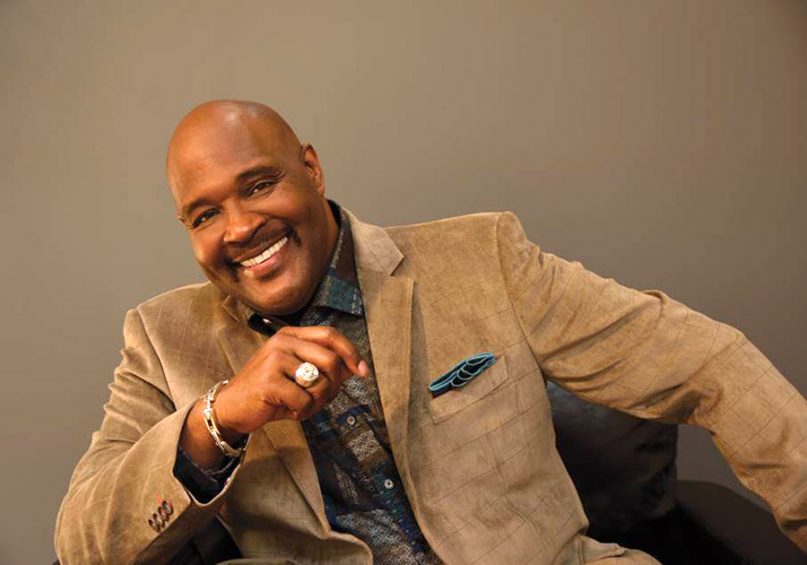
Pastor Marvin Winans. Photo courtesy of GBP Studio 2
He also started the Amelia Agnes Transitional Home for Women in an upscale Detroit suburb after a woman in his church told Winans she was living with a man who was not her husband but was helping care for her children.
“We don’t believe in folk shacking and living with folk that are not their husband legally or wife legally,” said Winans. “And that struck me, and the Holy Spirit said, ‘You cannot only tell them what to do. You have to offer an alternative.’”
Since the transitional home opened in 2001, it has housed about 50 single women and mothers, some who have been referred from homeless shelters and some who have been in abusive situations. It is named after Winans’ mother and the mother of his ex-wife, Vickie Winans, who had a total of 22 children.
The home’s clients occupy one of five family suites while they pursue employment and education opportunities and gain parenting and financial tips, said VeronCia Compton, executive director of the Perfecting Community Development Corporation, which includes the home among its programs. Some have completed nursing programs and master’s degrees.
In 2017, Winans opened Perfecting Church Toledo, which has more than 150 members at its Ohio location. On Sundays and some weekdays, he travels the hour-and-a-half drive between Toledo and Detroit to preach and meet with members.
Though the Detroit church listed 4,500 members on its website as of this week, Flowers said a recent “reregistration” of its members indicated about 1,800.
“Church is a little different during these times: People say, ‘You’re still my pastor’ but they’re inactive, they’ve moved. They’re out of town,” Winans said, when asked about the recount. “What we want to do is make sure we’re ministering to those who are not just in word saying, ‘I’m a member of the church,’ but are active in the church.”
One former member sued Winans in 2018 after accusing him of unfair labor practices.
Lakaiya Harris, a former housekeeping employee, claimed, among other things, that Winans required her as a member of the church to tithe on her gross earnings. Her suit alleges that when she refused, Winans fired her.
“That couldn’t be further from the truth,” Winans said when asked about Harris’ claims. “That’s being taken up in the court. I’ll leave it at that.”
Winans said the anniversary gala will help raise money for the transitional home as well as for a new edifice that has long been under construction on a 20-acre campus in Detroit. After it opens, he hopes to be consecrated as bishop of Perfecting Fellowship International, a network including more than a dozen churches in the U.S., the U.K. and South Africa.
He said it’s fitting to have Stevenson, a lawyer who works to exonerate wrongly convicted prisoners, as the speaker for his church’s anniversary. Winans said he has visited the museum and lynching memorial Stevenson’s Equal Justice Initiative opened in Montgomery, Alabama, last year.
“We want to stand on the side of justice equality,” Winans said. “We want to stand against the inequalities of our people. And that doesn’t make me a civil rights preacher. It just makes me a preacher that understands the importance of civil rights.”
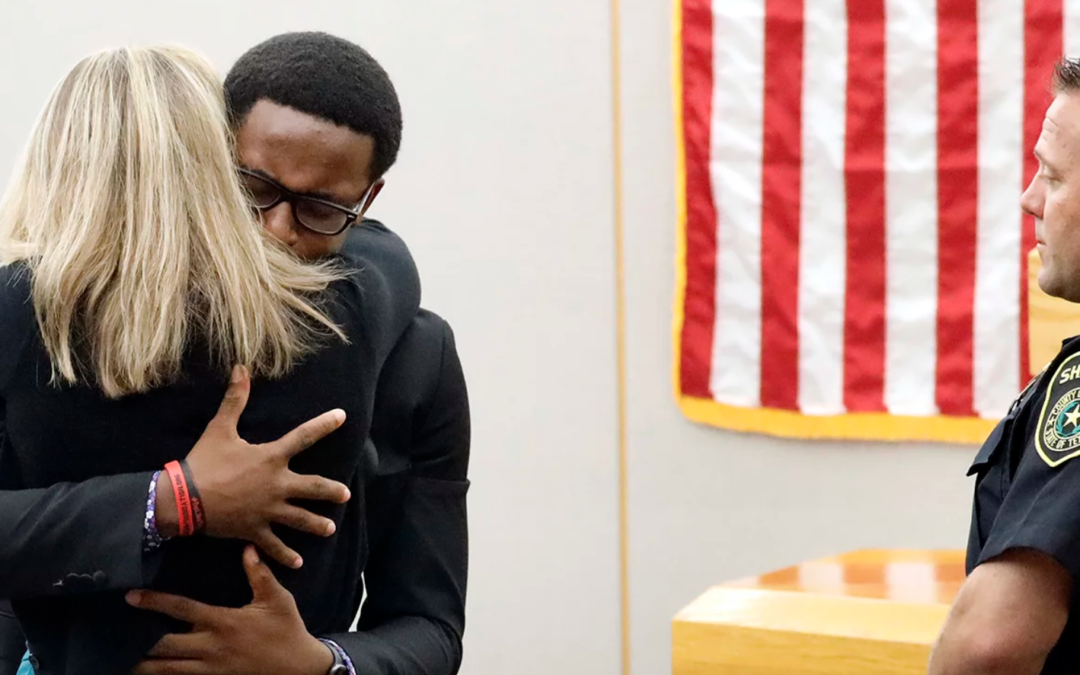
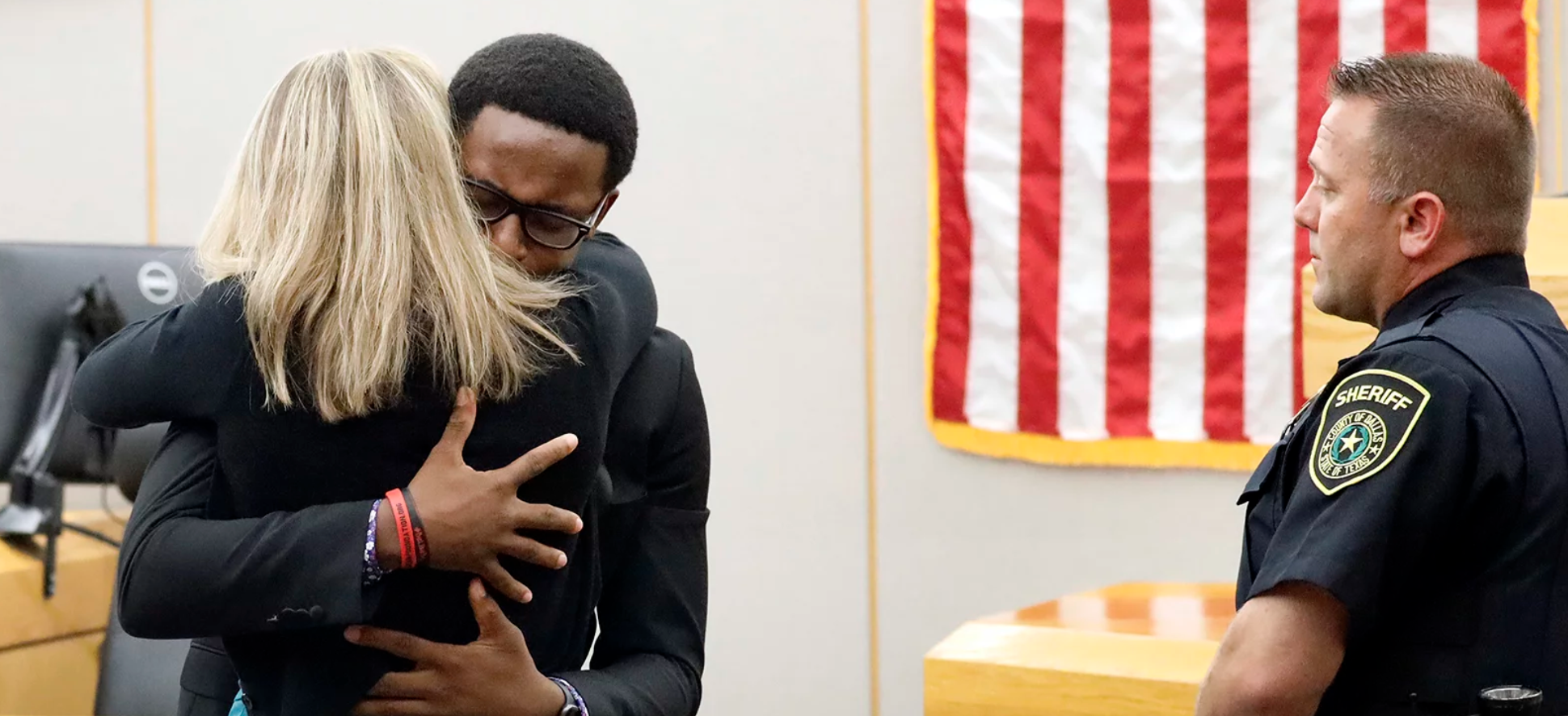
Botham Jean’s younger brother Brandt Jean hugs convicted murderer and former Dallas Police Officer Amber Guyger after delivering his impact statement to her after she was sentenced to 10 years in jail, on Oct. 2, 2019, in Dallas. Guyger shot and killed Botham Jean, an unarmed 26-year-old neighbor in his own apartment last year. She told police she thought his apartment was her own and that he was an intruder. (Tom Fox/The Dallas Morning News via AP, Pool)
RELATED: A TEST OF FAITH: KEY WITNESS IN GUYGER TRIAL DEAD
Last week, fired Dallas police officer Amber R. Guyger, who is white, received a sentence of 10 years in prison for the murder of an unarmed black man, Botham Shem Jean.
While the sentence of 10 years for Jean’s murder certainly didn’t sit well with many, the other events of the courtroom are what have become the subjects of discussion — the words of grace, forgiveness, love and well-wishes offered by Jean’s younger brother to Guyger, capped off by a warm embrace. And if that were not enough, Judge Tammy Kemp, also an African American, added grace upon grace by going to her office to retrieve a Bible. After handing it to Guyger, the judge, too, embraced Guyger tearfully and warmly.
This scene of grace, forgiveness and reconciliation operates almost like a ritual. We saw it in 2015 when relatives of the nine victims murdered by Dylann Roof in the shooting inside an AME church in Charleston, South Carolina, told Roof “I forgive you.” We saw it again when then-President Barack Obama eulogized Pastor Clementa Pinckney, one of those killed by Roof in that Charleston church, by singing “Amazing Grace How Sweet the Sound …”
The show of grace and forgiveness toward Guyger, like those before it, requires that we ask some hard questions. What if “grace” and “forgiveness” and their compulsory racialized performance are part of what makes this anti-black world keep on ticking? What if grace and forgiveness work in the interest of anti-blackness? And finally, what if grace and forgiveness are part of what must be refused in order to bring to an end an anti-black and brown world?
I know these are profane questions for a society that holds up forgiveness as hallowed virtues. But I raise them not to cast judgment on Jean’s younger brother. The Jean family is grieving. They are in a process of healing in the wake of violence and irreparable loss. My questioning of the virtue of forgiveness and grace in civil society does not begin with the individual.
Rather, I raise these questions to get at how America is structured through race.
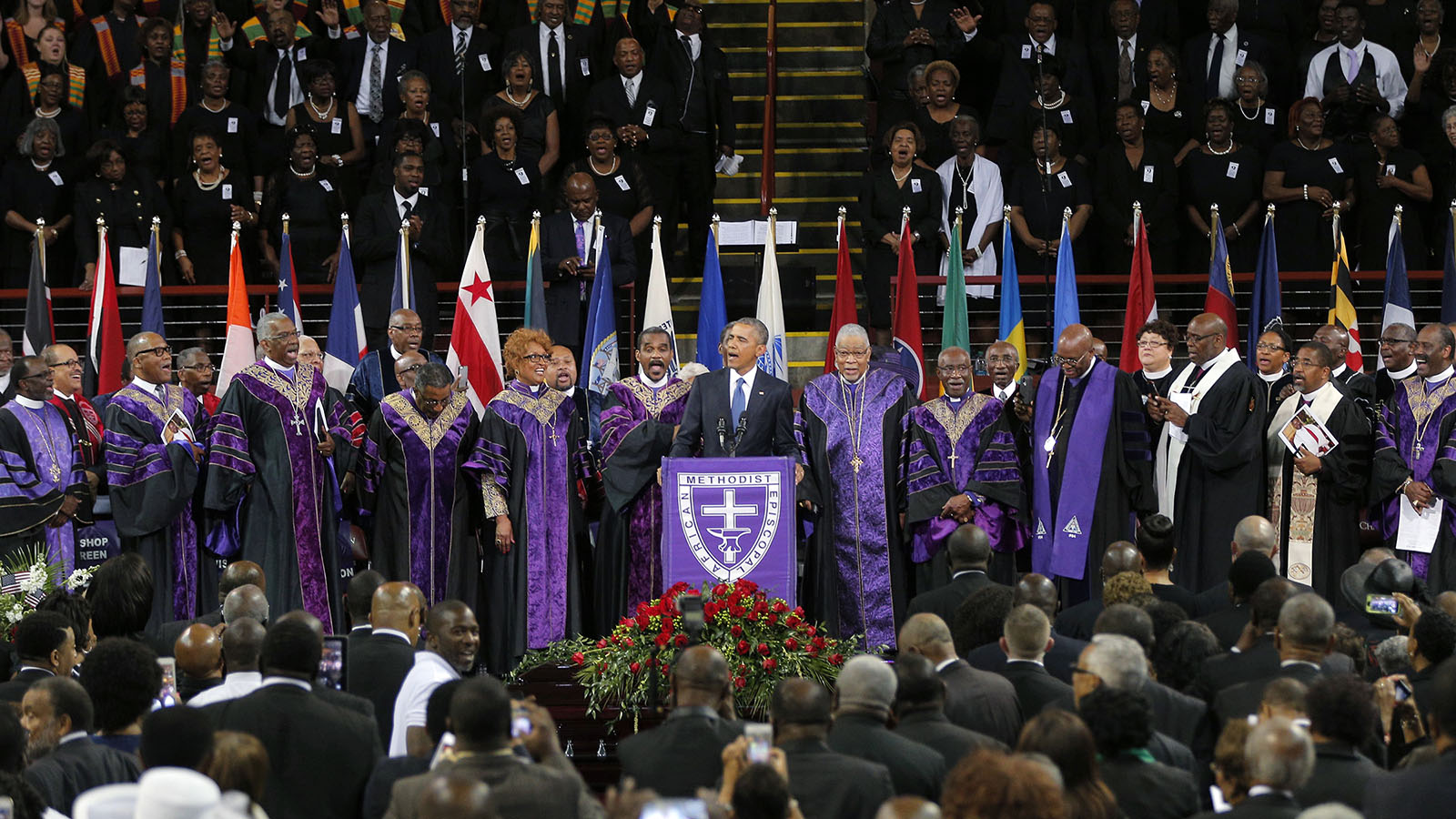
President Barack Obama leads mourners in singing the song “Amazing Grace” as he delivers a eulogy in honor of the Rev. Clementa Pinckney during funeral services for Pinckney in Charleston, S.C., on June 26, 2015. Pinckney was one of nine victims of a mass shooting at the Emanuel African Methodist Episcopal Church. Photo by Brian Snyder/Reuters
That is, in asking about the value of forgiveness and grace within the American social and political structure, I am asking about how the anti-blackness of American society works through religion-like rituals and liturgies of grace and forgiveness. I’m interested in how grace and forgiveness function publicly, how they script roles around blackness and death within a society organized around whiteness as the sign of proper life, or the life that is properly human. In this context, police violence and forgiveness rituals work to secure the common good and civil society. They work to secure America as a project of religion. Such religion may be thought of as “the religion of whiteness.”
Sociologist Robert Bellah coined the phrase “American civil religion” to explain how a secular nation maintains a religious dimension that suffuses public culture, from the political realm to civil society itself. That religious dimension has embedded within it beliefs, symbols, and ritual practices — the most well-known being the inauguration of U.S. presidents.
But Bellah’s concern was not just with the history of American religious belief, symbols and rituals. He came to his insight about the working of American civil religion in a moment when the American fabric was being torn by internal strife. It’s as if through his work as a sociologist Bellah was channeling the racial melancholy of a nation in fear and despair. The moment of crisis that he was trying to make sense of was the violence against black life and the protest movements of the 1960s.
Bellah’s idea was that the belief in and commitment to the sacred ideal of equal rights to all humans as the natural law guiding the American project is what America has always drawn on. He makes a case that the Founding Fathers in their exodus from the Old World to the new drew from the reservoir of this civil religion to found the nation. Later in America’s history, Abraham Lincoln, as a kind of savior, drew from the civil religion reservoir as well, though in his case, it was to preserve a nation in the internecine distress of the Civil War.
Notwithstanding Bellah’s great insight about the operations of American civil religion, what he nonetheless failed to grapple with was the degree to which America as a religious project rooted in the higher ideal or the natural law of human equality and freedom for all rested on an inequality within the ranks of the human ideal of freedom.
Bellah failed to address how America, as a project guided by the ideal of human freedom and equality, was predicated on settler colonial genocide and the ongoing use of black lives as property to rework stolen land and to build the national treasury. Within this structure of violence and death, blackness cannot matter for itself but only for its usefulness. In short, Bellah did not account for anti-blackness, which is not America’s original sin but its DNA.
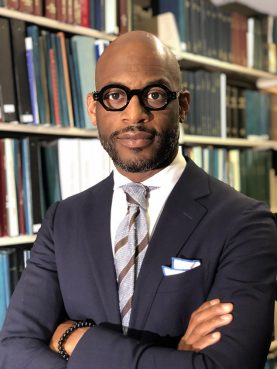
J. Kameron Carter. Courtesy photo
It is within this framework that the sacredness, sanctity and compulsory rituals of forgiveness must be understood. American religion needs black (and native) forgiveness in order to keep the national fantasy of civil society, which is anti-black, alive. After racial crisis and distress, American religion turns to rituals of forgiveness and grace carried out by those structurally positioned as black to re-cohere itself around its ideals of being the beacon of human equality and freedom. In fact, the rituals of forgiveness can be thought of as structural performances of the ideal made visible for an instant. These rituals of courtroom forgiveness display the “rightness” and sacredness of America as a project, confessed, as it were, by those who suffer under that project.
Again, what I am dealing with here is the American racial structure, not individuals. I’m dealing with why, within the religion of whiteness, whiteness needs black forgiveness to maintain itself. Black forgiveness is part of the ritual work of absolving or extending salvation to America. It is part of the work of re-cohering or saving whiteness in a moment of crisis. Should such black forgiveness be withheld, whiteness or the American religious project would face a potential collapse. It might suffer a “white out,” a possible end of the world or an end of its world.
But could the end of the world, a white out, be an alternative understanding of forgiveness, perhaps even an alternative religious orientation? Can there be a forgiveness that does not absolve guilt but brings the anti-black world to an end? Could there be a poetics of forgiveness that pressures forgiveness as we know it? Could there be a forgiveness that ends forgiveness, a forgiveness at the end of the world? Let’s hope so.
(J. Kameron Carter is a professor of religious studies at Indiana University. The views expressed in this commentary do not necessarily represent those of Religion News Service.)